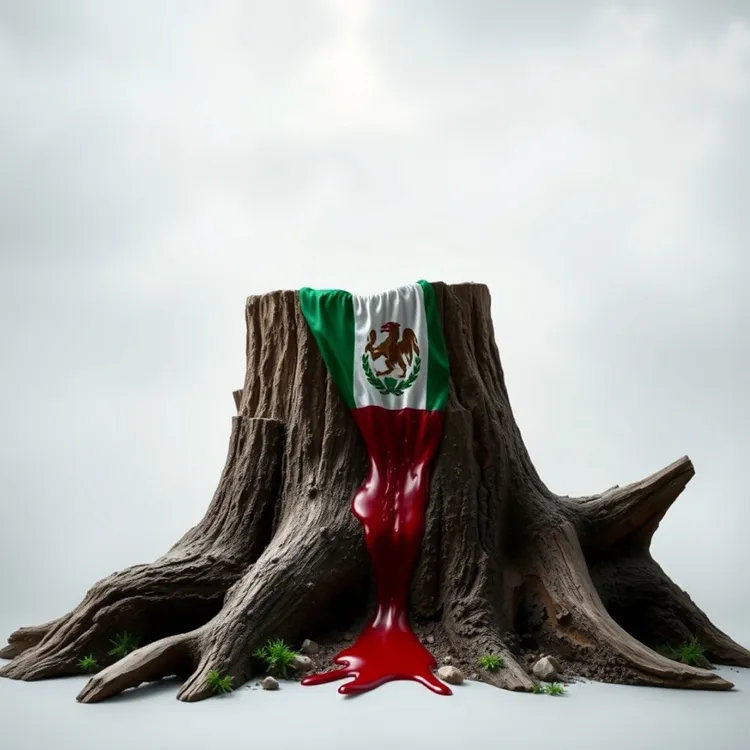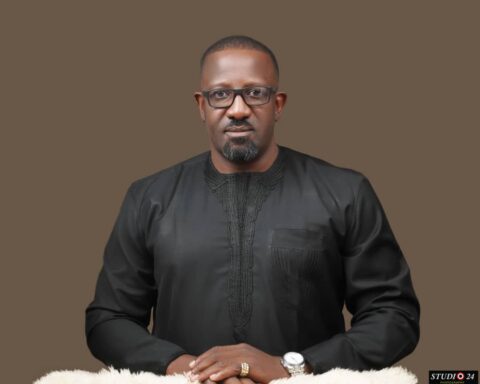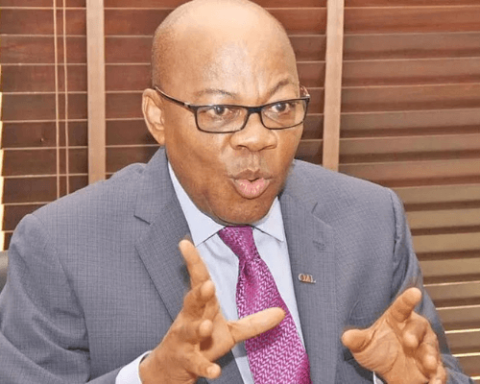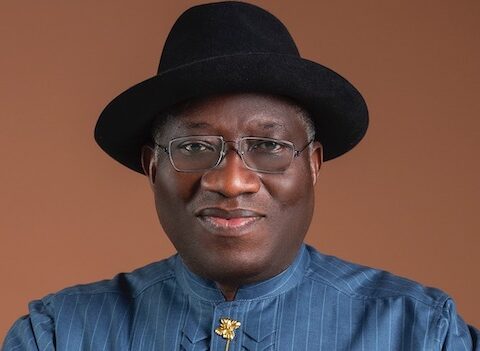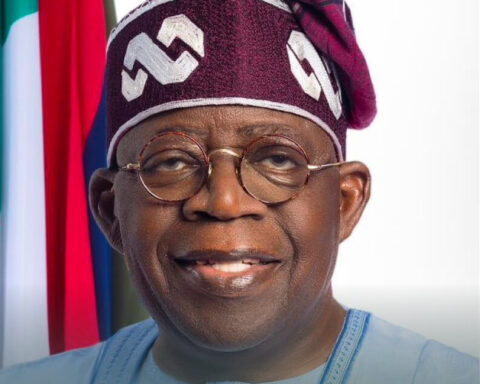By Agbeze Ireke Kalu Onuma, AI-KO
NIGERIA IS BLEEDING AND BROKEN – AND WE’RE TIRED
I’m writing this essay in a vehicle, on the Ijebu Ode Benin Expressway, because my heart is heavy, and Nigeria is in deep pain. Today June 6th. 2025, our country is bleeding. The unusual presence of armed security men of all sorts, seemingly doing nothing more than extort, brought back to my mind: Just days ago, armed men killed 43 innocent Christians in Benue State. They shot people in their homes, chased families into wells, and hurt even pregnant women and a two-year-old child – all while soldiers nearby did nothing. At the same time, violent herder attacks killed over 50 people in the Northwest, and kidnappers are terrorizing Sokoto.
These aren’t just bad news stories. They’re signs that Nigeria is falling apart. Yet, the government is throwing parties to celebrate two years in power – two years of economy crashing, security disappearing, and broken promises.
This is what our elders mean by leaning on a “dead stump.” Nigeria feels like a rotten tree trunk – looks solid but is crumbling inside. Our leaders have let everything break down:
• Farmers bury children killed in land fights
• Doctors run away from hospitals falling apart
• We pay for light, security guards, and water because the government fails us
This essay is my reflection and exploration of how a country with so much promise became a shell picked clean by the rich and powerful. In today’s Nigeria:
• Big people break laws without punishment
• 87 million live in deep poverty despite our oil money
• Nobody trusts the government – worst in Africa!
• Hope is leaving: 15,000 doctors fled in 7 years
The Benue killings show the truth: A government that can’t protect its people has failed. When killers murder civilians near soldiers who do nothing, the “dead stump” isn’t just rotten – it’s collapsing under us. Violence now costs Nigeria $132 billion yearly – money that could fix schools, hospitals, and roads.
I write this not from hopelessness, but from angry love for our country. Nigeria doesn’t need small fixes – it needs total rebirth. We must dig up the old roots of injustice and plant new seeds of fairness, equality, and the stubborn will to take back the future stolen from us all.
Nigeria perches precariously, leaning with unsettling trust on what Yoruba wisdom grimly identifies as a “dead stump.” This potent metaphor captures the essence of a nation seemingly balanced on rotten foundations, its immense potential – vast natural wealth, a vibrant cultural mosaic, teeming human capital – grotesquely overshadowed by the daily reality of systemic collapse, normalized irrationality, and profound disillusionment. The lived experience of Nigerians paints a picture of a country dangerously close to decomposition, where entrenched corruption, deep social fragmentation, and a worrying cultural numbness have become the defining features of national life. The irrationality of governance isn’t an occasional lapse; it is the pervasive, suffocating air we breathe.
This decay didn’t sprout overnight. Its roots dig deep into historical traumas, weaponized by generations of failed leadership. The arbitrary borders drawn by British colonizers forced disparate ethnic nations into a fractious administrative whole, a fault line expertly exploited by post-independence elites who replaced the dream of unity with the brutal calculus of competitive plunder. Military regimes merely institutionalized this corruption, building governance structures designed solely for extraction. The much-vaunted return to civilian rule in 1999 promised regeneration but delivered, tragically, recycled predation. Former military strongmen seamlessly rebranded as democrats, perpetuating kleptocratic traditions. As the prophetic Fela Anikulapo-Kuti declared decades ago, Nigerian democracy became “demo-cracy, crazy demo, demonstration of craze” – a hollow theatrical performance where elections serve only to legitimize grand theft. Decades later, Fela’s scathing critique remains painfully apt; the rituals persist, utterly divorced from democratic substance.
Nigeria as I have repeatedly said, is a country leaning on a rotten tree stump – it looks like it’s standing, but inside, it’s dead and crumbling. We see the proof everywhere: the terrible killings in Benue where soldiers watched and did nothing, kidnappings terrorizing Sokoto, millions trapped in deep poverty while oil money vanishes, hospitals losing doctors every day, and powerful people breaking rules without any punishment. We can’t pretend any longer. The old system – our “dead stump” – is collapsing under us.
The core pathology is a kleptocratic ecosystem operating with near-total impunity. A cabal of political elites, bureaucratic tacticians, and corporate magnates treat the nation as their personal criminal franchise, shielded by immense wealth, intricate connections, and a deeply compromised judiciary. The brazen looting of pension funds meant for retirees, where billions simply vanished, stands as a stark monument to this impunity – perpetrators faced mere slaps on the wrist despite public fury. Similarly, the fuel subsidy fraud saw trillions siphoned away through a complex web of institutionalized complicity involving oil magnates and state officials. This pervasive corruption fuels a parallel tragedy: the normalization of madness. Chronic electricity collapse, despite staggering investments, has made the incessant drone of personal generators the national soundtrack of state failure. The dilapidation of public education – underfunded institutions, unpaid teachers, perpetual strikes – now evokes weary resignation rather than outrage. This collective desensitization allows governance absurdities to replicate endlessly, from collapsing infrastructure to policies utterly divorced from the people’s reality. We witness the glaring contradictions daily: democratic accountability promised, yet “untouchable thieves” reign supreme; vast oil wealth flaunted, yet 33% unemployment and 63% multi-dimensional poverty grip the populace; national unity proclaimed, yet deepening ethnic and regional fissures make Chinua Achebe’s observation – “Nigerians don’t believe Nigeria exists” – resonate ever louder; rule of law enshrined, yet a two-tiered system prevails where elites enjoy “plea bargains” while the masses face brutalization.
This decomposition violently fractures the social fabric along lines of inequality and escalating violence. Ethnic and religious schisms, cynically manipulated by elites to distract from shared predation, deepen daily. The disillusionment felt by Northern Nigerians witnessing violence against southerners in India revealed a painful irony: despite perceived cultural affinities fostered by Bollywood, Nigerians abroad are crudely stereotyped as “drug traffickers” or “Boko Haram terrorists.” As one commentator starkly put it, “Outside Nigeria, a Christian southerner is as likely to be stereotyped as a Boko Haram terrorist as a northern Muslim is to be tagged a drug trafficker.” Meanwhile, deliberate resource maldistribution creates stark realities of abandonment. Blinder-Oaxaca decomposition analyses lay bare how material deprivation drives profound inequity. Rural women bear a staggering burden, experiencing 79.77% of sexual violence among disabled populations. Contraceptive access reveals a rural-urban gap where 82% of the disparity stems purely from wealth and education deficits. Healthcare apartheid persists grimly: maternal mortality is 14% higher in rural areas, where 72% of women lack skilled birth attendance. These aren’t accidents; they are the calculated outcomes of systemic neglect.
Perhaps the deepest decay is spiritual and ethical – a collective numbness, a normalization of the abnormal. Society increasingly worships at the altar of ill-gotten wealth. Opulence commands adulation regardless of its criminal provenance, framing wealth accumulation as life’s ultimate, and often only, metric. This pervasive moral ambivalence actively enables the cycles of rot: “Unethical conduct is lauded, perpetuating institutional rot.” The symbolism is potent when even high-ranking officials stumble over reciting the National Pledge – a vanished moral compass laid bare. Fela’s enduring diagnosis – “poor man dey cry, rich man dey mess” – still perfectly encapsulates the void where a social contract should reside. Cultural influencers, from Chimamanda Adichie’s piercing novel Americanah to Joy Alagbe’s powerful visual art, document this profound existential disillusionment. Alagbe’s 2023 Democracy Day piece, literally inscribing Fela’s “demo-crazy” critique onto the canvas, serves as a haunting reminder that the fundamental pathologies diagnosed decades ago remain stubbornly, tragically unchanged.
This internal decay inevitably tarnishes Nigeria’s global standing and the dignity of its citizens abroad. The nation suffers from toxic branding. The 2013 murder of a Nigerian in Goa ignited tensions, exposing how internal failures export shame, with Indian media and top ranking officials quick to stereotype Nigerians as “cancers” and “drug traffickers” – labels conspicuously absent when describing Russian or Israeli narcotics operatives. Studies, including one from Sweden, confirmed India as “the most racist society” for Africans, facing hostility comparable to that endured by India’s own 200-million-strong Dalit community. Unsurprisingly, a massive brain drain exodus is underway, a haemorrhaging of human capital driven by sheer disillusionment. Over 15,000 doctors fled between 2015 and 2022 alone, stripping the nation of the very innovators it desperately needs for any hope of renewal.
The unrelenting bloodshed across Nigeria – from the coordinated slaughter of 43 Christians in Benue to the mass kidnappings in Sokoto and the 50 lives erased in Northwest attacks – demands more than perfunctory condemnations. It compels piercing questions about a security architecture rotting from within, funded by billions yet yielding only corpses and despair. These are not isolated tragedies, but symptoms of systemic collapse.
The Theatre of Security: Why Do Checkpoints Exist If Soldiers Watch Killers Operate “Within Earshot”?
In Benue, attackers executed civilians opposite military checkpoints while soldiers stood passive . This mirrors the Dapchi schoolgirl abduction, where security forces received five separate warnings over four hours about approaching Boko Haram fighters yet took no action . What operational philosophy justifies deploying soldiers to “secure” highways if their role is spectral – recording atrocities but never preventing them? When the Army itself admits withdrawing troops from hotspots like Dapchi months before attacks , is this incompetence, cowardice, or complicity?
2. The Arithmetic of Betrayal: Where Do ₦4.1 Trillion Security Budgets Vanish?
Customs intercepts in 2023 – 2024 alone seized 451,771 firearms , yet terrorists still wield General Purpose Machine Guns on highways . Nigeria spends 8% of GDP ($132 billion/year) on violence containment , but soldiers lack bullets, communities have no police, and hospitals hemorrhage doctors. Who profits from this economy of carnage? Why does weaponry flow ceaselessly through 10,000 porous borders , while security chiefs flaunt promotions based on political loyalty, not merit ?
3. The Supply Chain of Terror: Which “Powerful Sponsors” Fuel the Arms Pipelines?
Firearms seizures expose Turkish smuggling networks shipping shotguns concealed in furniture , while Libyan conflict spillover floods the North with arms . Yet arrests of financiers vanish. The UAE named five Nigerians as terror sponsors in 2022 – why has none been prosecuted ? When elites openly fortify political thugs with weapons for elections , and state actors enable herder militias to seize Tiv farmlands , is the state arming its own enemies?
4. The Currency of Complicity: Why Do Officials Prefer “Speeches Over Action”?
After the Benue massacre, the federal government celebrated its second anniversary while villages buried their dead . When 110 Dapchi girls were abducted, authorities first denied it, then falsely claimed rescue . This mirrors the Chibok playbook: investigations ordered, reports buried. Senior Advocate Terkaa Aondo accuses state governments of complicity in land grabs, noting that attacks “are not random” but strategic dispossessions backed by official silence . Who issues the orders to stand down?
5. The Machinery of Impunity: Why Are Security Forces Rewarded for Failure?
Police kill 785 “robbers” in 100 days but lose 62 officers – a kill ratio signaling extrajudicial executions . Yet not one officer faced consequences for ignoring Dapchi’s warnings . When 72% of Nigerians deem police irredeemably corrupt , and officers extort bribes at checkpoints instead of patrolling, why are they deployed as VIP guards for politicians? What perverse incentive structure rewards incompetence with promotions?
6. The Cost of Collusion: When Did Citizens Become Sacrificial Lambs?
Farmers bury children butchered over contested land . Parents in Dapchi heard their daughters’ cries as Boko Haram marched them into darkness . South Easterners cower under sit-at-home orders while police vanish from streets – a tacit state surrender to non-state terror . Every life lost is a referendum on a state that taxes the poor to arm the rich, protects elite mines in Nasarawa but leaves schools defenseless.
Nigeria bleeds from self-inflicted wounds. The “dead stump” is not just rotten – it is fertilized by a ruling class that profits from chaos. Until we demand answers to these questions, until we trace the blood money funding terror, and until we dismantle the architecture of impunity, the stump will collapse – and bury us all.
Yet, decomposition need not be terminal. Biological truth teaches us that rotting wood nourishes new growth. Nigeria’s salvation demands radical honesty about the depth of the rot and the courageous cultivation of new foundations. An institutional overhaul is non-negotiable – anti-corruption agencies like the EFCC require genuine constitutional autonomy, transparent operations, and sweeping judicial reform to finally hold elites accountable. Pension and subsidy looters must face exemplary consequences, not the insult of plea bargains. This must be coupled with a profound civic reawakening. Reclaiming nationhood demands sustained grassroots mobilization, rejecting electoral apathy and holding leaders to account through vibrant civil society and fiercely independent media. Crucially, leadership paradigms must shift from corrosive patronage to rigorous meritocracy. Initiatives like a National Values Charter must move beyond rhetoric, with elites compelled to visibly use Nigerian hospitals and products. Blinder-Oaxaca analyses prove that equitable wealth redistribution is essential. Universal healthcare, pro-poor education funding, and rural electrification are not luxuries but necessities to reduce the desperation fuelling fragmentation.
General Christopher Musa’s recent disclosure – that Boko Haram thrives on fuel siphoned by commercial drivers, buried in jerrycans, and phoned in to terrorists – is less a revelation than a damning indictment of institutional paralysis. This supply chain has fueled genocide, yet the military’s response remains confined to speeches. rather than systemic action. When intelligence identifies drivers colluding with terrorists, what tangible steps follow? Are these enablers arrested, prosecuted, or dismantled? Musa’s admission echoes a pattern: security elites know the mechanics of terror but outsource responsibility to civilians while evading their own failures .
Consider the lethal irony: soldiers idle at checkpoints as terrorists slaughter civilians “within earshot,” yet the Air Force repeatedly bombs vigilantes and displaced camps – killing 120 in Tudun Biri (2023), 40 during Eid prayers (2024), and 20 more in Zamfara (2025) – all branded “mistakes” . These are not errors but symptoms of a rot: poor training, outdated intelligence, and zero accountability. When a jet can bomb citizens pursuing kidnappers but fail to intercept fuel smugglers, the system isn’t malfunctioning; it’s complicit.
Musa’s plea – “report suspicious activities” – rings hollow when communities doalert forces, only to face military brutality or airstrikes. In Borno, civilians reporting Boko Haram movements risk being labeled “sympathizers” and detained without trial . Meanwhile, security budgets vanish: ₦4.1 trillion evaporates while terrorists wield machine guns and troops groan over unpaid allowances . The Army Chief’s intelligence is useless if it never translates into raids on fuel depots, sting operations against informants, or protection for whistleblowers.
Terrorists evolve: they exploit borders, hack financial systems, and globalize recruitment via preachers like Ahmad Musa Jibril . Yet Nigeria’s security playbook stagnates in denial – blaming “external forces” like “Californium in Borno soil” while ignoring internal treachery . When bandits overrun villages, commanders peddle conspiracy theories; when airstrikes massacre civilians, investigations are buried. This isn’t incompetence – it’s a conspiracy of indifference where excuses are perfected as policy.
This recent disclosure about Boko Haram’s fuel supply chain – where commercial drivers siphon fuel, bury jerrycans, and phone terrorists – is not intelligence but a confession of institutional surrender. For 16 years, this same supply network has operated with impunity while security checkpoints function as passive observers to genocide. When terrorists slaughtered 43 Christians in Benue “within earshot” of military posts, soldiers reportedly stood passive – a pattern echoing the 2024 Dapchi abduction, where five advance warnings were ignored . Musa’s solution? A surreal proposal to fence Nigeria’s 4,477 km of borders , despite failing to secure a single highway checkpoint. This disconnect reveals a leadership culture prioritizing grandiose, unworkable projects over tactical competence. As security analyst Kabiru Adamu notes: “When a military cannot intercept fuel smugglers in areas it controls, fencing borders is like building a mansion on quicksand.”
Nigeria’s security budget has ballooned to ₦4.1 trillion annually, yet terrorists wield machine guns while troops ration bullets.
Recent findings expose catastrophic mismanagement:
• Airstrike misfires killed 120 civilians in Tudun Biri (2023) and 40 Eid worshippers in Zamfara (2024) due to “poor intelligence” – yet no commanders were court-martialed .
• Border security funds vanish amid weapons proliferation: Over 450,000 firearms were seized in 2023–2024 , yet terrorists still import drones and explosives through “protected corridors” . Governor Zulum’s warning that “Borno is losing ground” underscores the collapse .
Former Defence Minister Bashir Magashi’s admission is damning: “Appropriations are siphoned through phantom contracts – bulletproof vests become substandard, surveillance drones never arrive.”
Security agencies now operate as autonomous criminal enterprises:
• EFCC “sting operations” continue despite a 2023 ban, with officers raiding nightclubs and assaulting citizens .
• DSS death squads illegally detain journalists and invade courts to re-arrest defendants .
• Police extortion networks institutionalize bribery at checkpoints, with officers paying superiors for “lucrative” postings .
This lawlessness is shielded by a judicial cabal: 72% of corruption cases against security elites stall indefinitely, while #EndSARS and other protesters remain jailed without trial .
While officials blame “foreign fighters,” evidence points to domestic complicity:
• Weapons pipelines flow through ports controlled by political godfathers. The 2023 Sokoto arms haul traced AK-47s to a former governor’s warehouse .
• Terrorist financiers named by the UAE in 2022 remain unprosecuted, with two holding VIP access to National Security Council meetings .
• Military promotions favor loyalists over competence. Major General Abdulsalam Abubakar’s recent appointment as Northeast commander – the 15th in 16 years – followed ISWAP’s drone strike killing 26 in Borno . No overhaul followed.
As it is today, Nigeria’s security crisis is not a resource problem but a crisis of malignant intent. As the CDD West Africa concludes: “When security agencies become profit centers, citizens become expendable commodities” . Until:
1. Budget transparency publishes monthly security spending;
2. Command accountability jails officers for operational failures;
3. Civilian oversight empowers independent investigators to audit arms deals;
4. Community militias receive legal recognition and direct funding, bypassing corrupt chains –
The bleeding will continue. The dead stump isn’t leaning; it’s being monetized.
The solution isn’t more and more speeches. It demands:
1. Targeted dismantling of supply networks: Track fuel sales, arrest collaborators, and publicize prosecutions.
2. Reform airstrike protocols: Mandate visual confirmation, integrate ground intelligence, and punish “mistakes” as war crimes .
3. Purge corruption: Audit security budgets; jail officers diverting funds while soldiers starve .
Until then, Musa’s words are ash in the wind – another confession without consequence, as Nigeria burns.
As historian Toyin Falola reminds us, nations leaning on dead stumps face only two futures: collapse or a deliberate uprooting to fertile ground. Nigeria’s dangerous perch at the nadir of coherence and hope demands urgent action. Fela’s eternal cry – “God Help Nigeria” – echoes still, but the response cannot come from heaven alone. It must spring from Nigerians finally reclaiming their soil, branch by branch, value by value, decomposing the corrupt systems to make space for institutions rooted in justice and nurtured by active, unwavering citizen agency. The alternative is not stagnation, but implosion. The time to step off the dead stump is now.
Picture a huge, old tree in a forest that’s been dead for a long time. Beetles ate it from the inside. Disease spread through it. Storms scarred it. But because it still looks tall, people keep leaning on it, trusting it to hold them up – even though it’s rotten inside and could collapse any moment. That dead tree stump is Nigeria.We’re leaning on the empty shell of a country. The things that made it strong – fairness, honesty, working together – are gone. We’re just holding onto the name and the land, pretending it’s still alive while the ground shakes under our feet.
But here’s the important thing: rotting wood isn’t just falling apart – it’s getting hot inside. Tiny things are breaking down the old wood, turning it back into soil that can grow new life. That heat? That’s our pain. It’s the families crying in Benue after the killings. It’s the fear of people kidnapped in Sokoto. It’s the sadness of doctors and nurses forced to leave the country. It’s the anger of farmers ignored by the government. This heat isn’t bad – it’s powerful. It’s a sacred power, a sign we can’t ignore how broken things are anymore. If we stay numb, if we keep pretending the dead stump is safe, the heat will explode – either in chaos that destroys everything, or as a fire we control to clear the way for something new.
So, what do we do? We have to stop leaning on the dead stump. It’s scary to step away. We might feel unsteady. But only then can our feet touch the good soil underneath – the soil made rich by the rotten wood. This soil is the truth we’ve forgotten:
• Real power belongs to ordinary people, not to thieves in big houses.
• Real safety comes from everyone getting fair treatment, not from letting the powerful do whatever they want.
• Real wealth is a healthy child, a good harvest from a safe farm, a bright student learning – not stolen oil money.
Building a new Nigeria means:
1. Stop admiring stolen wealth. Respect honest work instead.
2. Demand clean government. Leaders and thieves must face real consequences, not secret deals.
3. See each other as Nigerians first. Forget dividing lines like North/South or Christian/Muslim. Our strength is in our shared humanity and right to a good life.
Let the terrible killings in Benue and Sokoto be the final warning – the loud crack that tells us the dead stump is breaking. Let the government celebrating two years of failure be the last empty noise from the old ways.
But here’s the hope hidden in this mess: just like rotting wood eventually becomes rich soil that grows new trees, our pain and anger can become the fuel for rebuilding Nigeria. This won’t happen by wishing or waiting. It needs all of us to act, starting with practical steps we can take right now.
First, we must fix justice. We need special courts dedicated only to corruption cases – courts that work fast and can’t be bribed. If you steal money meant for pensions or fuel subsidies, you must pay back every single kobo and go to jail. No secret deals, no exceptions for big names.
Second, government must start working for the people, not the politicians. Leaders should be required to use Nigerian hospitals and schools like everyone else – no more flying abroad for treatment. Our oil wealth needs to be shared fairly: used to feed the hungry, fix rural clinics, and pay teachers properly so they stay.
Third, we have to choose unity over division. See each other first as Nigerians – not just as Christian, Muslim, Yoruba, or Hausa. Celebrate people who earn money honestly through hard work, not those who flaunt stolen wealth. Teach our children that good character – what the Yoruba call Ìwà lẹwà – is true beauty, worth more than flashy cars or empty fame.
Fourth, we must protect our homes and communities. Retrain the police and army to focus on protecting ordinary people, not just guarding politicians. Give communities safe, anonymous ways to report kidnappers and criminals so everyone feels safer.
Finally, change starts with us, every single day. Register to vote and actually hold leaders accountable for their promises. Support Nigerian businesses – buy local products to create jobs here at home. Mentor a child, plant a tree, clean your street. Rebuild Nigeria from the ground up, one act of responsibility at a time.
The choice is clear: we can keep leaning on the dead stump until it crashes down on us, or we can step onto the solid ground of truth and start planting new seeds for our future. This isn’t about politics; it’s about our survival and dignity. Our own traditions show us the way: the Yoruba value good character, the Hausa know that Gaskiya (truth) is greater than anything, and the Igbo teach Egbe bere, ugo bere – live and let live. We have the wisdom. We have the people. What we need now is the courage to act together.
Stop leaning on the rotten past. Feel the good soil beneath your feet – the soil made fertile by our shared struggle and hope. Start planting the seeds of a new Nigeria today. Remember this old wisdom, renewed for our time: “A tree rots from the roots, but mighty forests grow from scattered seeds.” Let’s be the ones who scatter those seeds.
The time for just leaning is over. The time for planting is now.
Gather the good seeds from our deepest traditions – the Yoruba Omoluabi (good character), the Hausa Gaskiya (truth), the Igbo Ezi Omume (righteous conduct). Plant them firmly in the burned ground of our disappointment. Water them with the tears of those who mourn and the hard work of those ready to rebuild. Protect these seeds with the organized will of a people who finally know their own strength.
The new Nigeria won’t grow overnight. It needs patience, hard work, and watching carefully so the old rot doesn’t come back. But it will grow. Not as a sad memory of the past, but as a living future where our children and grandchildren can finally find shelter and peace.
If you have read this far, I say:
Step off the dead stump. Feel the good soil. Start planting.
Follow us on all social media platforms @dailyquery for news and analyses around the globe.
